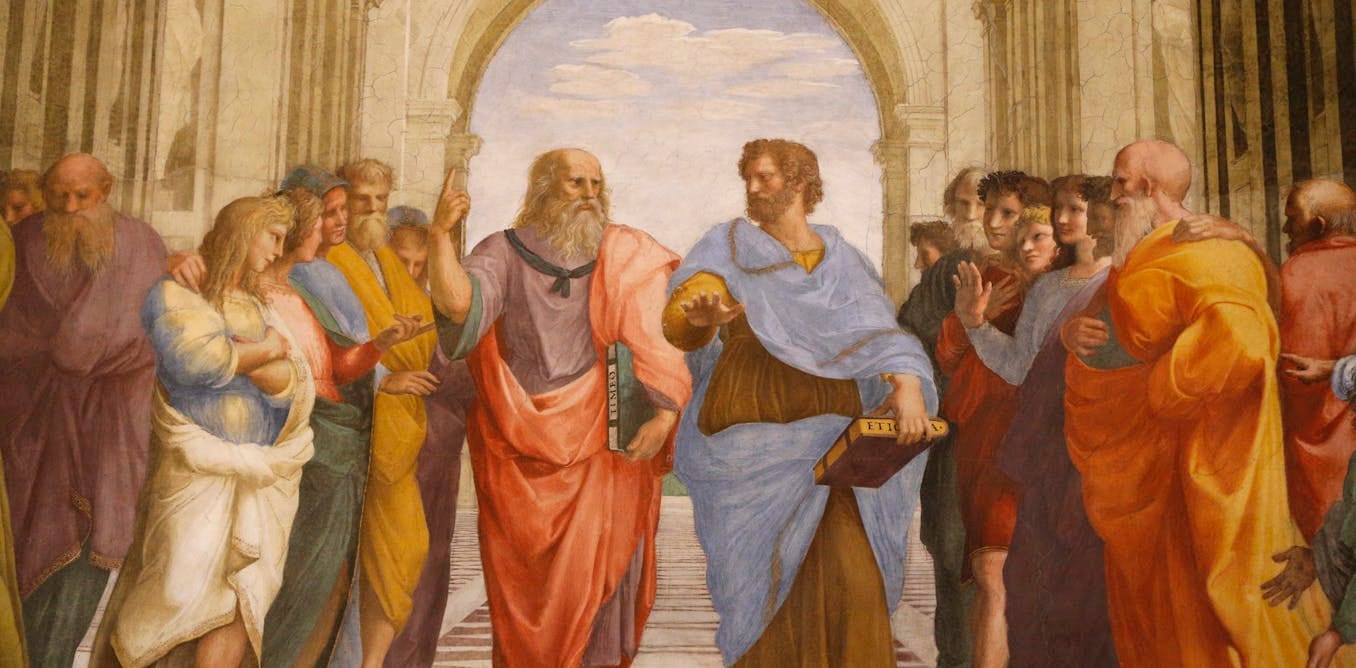
In book eight of Nicomachean Ethics, Aristotle embarks upon his definition of friendship, the different species thereof, and how they are related to love, happiness, and virtue. First, Aristotle places friendship as the best of all external goods, “for no one would choose to live without friends even if he had all the other goods.”1 If one can be happy without good X but with friendship, and would be unhappy with good X but without friendship, it seems logical to conclude that friendship is the best of all goods. So, friendship is the greatest of all goods, but what is it? Who does it occur between?
Apparently, the whole “opposites attract” aphorism existed in ancient times. Aristotle takes up the challenge of whethere Heracleitus or Empedocles was right about who makes the best friends. The forrmer arguing that “the finest harmony arises from discordant elements” and that latter affirming that “similar aims for similar.”2 Aristotle comes down decisively on Empedocles’s side; he argues that true friends “must have goodwill to each other, wish goods and be aware of it [from the cause of virtuous character].”3 Aristotle acknowledges two other species of friendship exist: those based on utility and pleasure, respectively. But these are inferior types and not worth considering further.
Aristotle expounds upon friendship founded upon good character, saying “complete friendship is the friendship of good people similar in virtue; for they wish goods in the same way to each other insofar as they are good, and they are good in themselves.” Moreover, such friends wish these goods “to each other for each other’s own sake,” wich makes them “friends most of all; for they; for they have this attitude because of the friend himself, not coincidentally.”4 Later, in book nine, Aristotle recognizes that all those common descriptions of friendship most aptly apply to a person and himself. He takes pains to elaborate that self-love, i.e., friendship with oneself, is not vicious among virtuous people, but an expression of the highest degree of virtue.
The decent person, according to Aristotle, “finds it pleasant to spend time with himself. . . for his memories of what he has done are agreeable, and his expectations for the future are good, . . . [and] his thought is well supplied with topics for study.”5 Base men, by contrast, are unable to establish friendship between the different parts of their souls6, because they “an appetite for one thing and a wish for another, . . . shun life because of their vice,” and cannot “share [their] own enjoyments and distresses” due to their inner turmoil.7 The vicious man can be neither a friend to himself nor anybody else; the virtuous man, however, “is a friend to himself most of all”8 and helps “himself and benefit[s] others by doing fine actions.”9
Aristotle presents two syllogisms toward the end of book 9 that help us understand the friendship between virtuous people and the reason why they take pleasure in the company of the other. In short, the activity of a good person is excellent and, therefore, pleasant in itself; what is our own is plesant; we are better able to observe others than ourselves; the good person, then, is “pleased to perceive something good in itself together <with his own being>.”10 The virtuous man delights in the virtuous action of his friend because such behavior is an expression of himself, i.e., his own virtues. Moreover, such friends “spend their days together on whichever [shared] pursuit in life they like most; for since they want to lvie wtih their friends, they share the actions in which they find their common life.”11
Curiously, this kind of friendship seems to describe the best romantic and platonic friendships, which raises the question I keep returning to in my mind and on this blog: what is the sui generis feature that distinguishes the former from the latter? Aristotle claims that “what the erotic lover likes most is the sight of his beloved,”12 but this superficial aesthetic appreciate surely can’t be that which delineates friendship from romantic partnership. The investigation continues! Forever, potentially. . .
Nicomachean Ethics, Book VIII, 1155a5-6.
Ibid, 1155b5-8.
Ibid, 1156a5.
Ibid, 1156b7-12.
Ibid, 1166a25.
Aristotle’s soul in this book seems to resemble the multi-part one of Plato’s Republic. See 1166a35.
Ibid, 1166b5-20.
Ibid, 1168b10.
Ibid, 1169a13.
Ibid, 1170b6.
Ibid, 1172a4-9.
Ibid, 1171b29.




Though intellectually its hard to distinguish romantic from platonic love, the difference is observed. Romantic love can *start* as platonic, but the shift is felt. Its animalesc, carnal. The continuation of humanity has relied on friends realizing they crave more out of each other. Explaining love is seeking a reason to why we eat or cry. Romantic love is inside us, its hormonal, unable to be reasoned-- to put it into words would be futile.